Exploring whether the playoff rust factor is real, and the limits of draft-and-develop
Is more rest before a playoff series truly an issue for the best teams in Major League Baseball?
And if it is, what - if anything - should be done about it?
Rust is a talking point in MLB right now.
On Thursday, the 104-win Braves, owners of the league's best record (and best offense since the 1927 Yankees), were ousted from the playoffs by the 90-win Phillies. It was deja vu: last season, 87-win Philadelphia defeated 101-win Atlanta on its path to the NL pennant.
The 101-win Baltimore Orioles were also swept, by the Texas Rangers in their AL Division Series. The 100-win Los Angeles Dodgers are done, too, swept by the Diamondbacks, who owned a negative regular-season run differential.
That makes it back-to-back seasons in which the Dodgers lost to a division foe they easily bested in the regular-season standings. Last year, it was the Padres, who finished 22 games back in the NL West. This year, Arizona finished 16 games back.
The teams with the five best records in baseball (including the Tampa Bay Rays) went 1-13 through the wild-card round and division series.
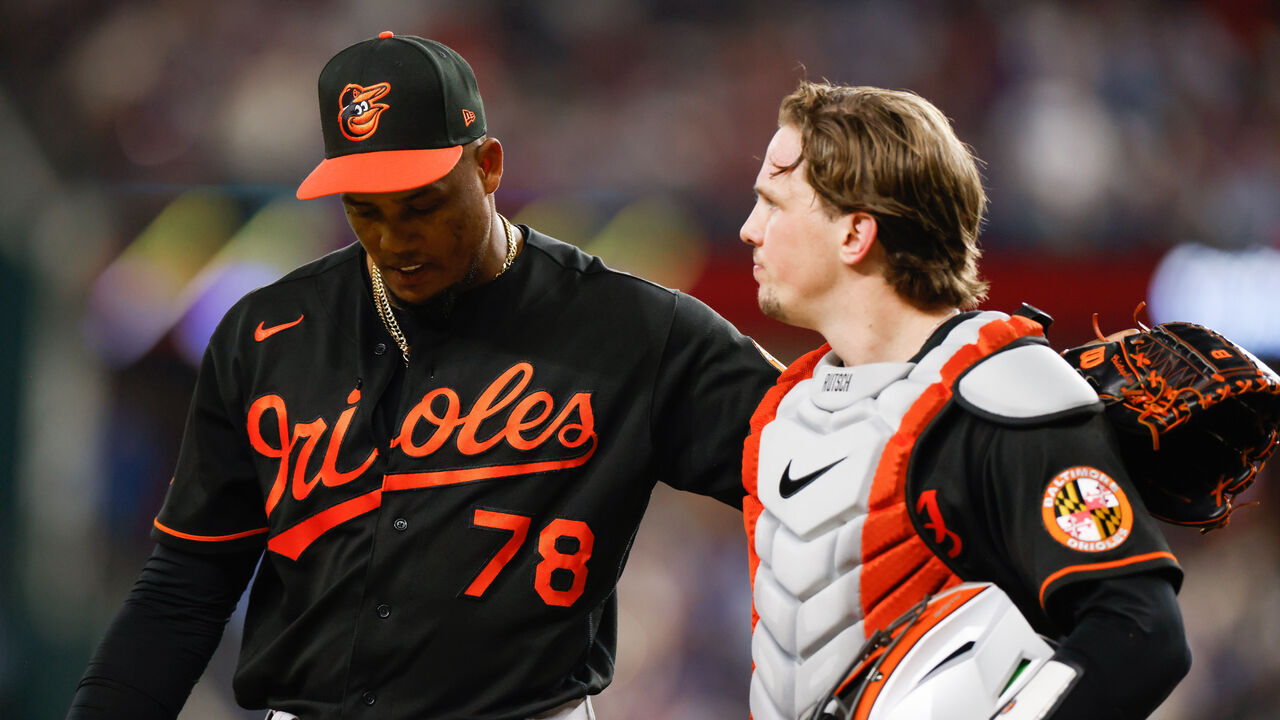
The Braves, Dodgers, and Orioles all had five-day breaks between their last regular-season games and their division series opener (the Astros are the only team with a bye to advance). A number of players - past and present - have complained that a lengthy rest can be disruptive in a sport that's played nearly every day over the course of six months.
"At no point during the regular season did the Dodgers play as few baseball games (four) in an 11-day stretch as they just completed," former pitcher Dallas Braden wrote on X. "The two MVP candidates in Mookie (Betts) and Freddie (Freeman) were a combined 1-21. Take-home message is timing matters and not having game reps at this point of the season matters."
So, we dove into the data, which we first explored last year, when the current playoff format was introduced. We now have eight more data points to assess whether there's a disadvantage to having extra time off in the playoffs.
theScore examined Retrosheet data dating back to 1995, the beginning of the wild-card era, to identify all teams that had four or more days of rest in the postseason compared to a series opponent with less rest. There are 48 such playoff series in the wild-card era to date.
We'd expect rest issues - rust - to be more pronounced in the first game back after a layoff, though issues could be offset by teams having their best starting pitcher available.
Rested teams went 22-26 in Game 1s of the 48 series, and won only 20 of them. Of the 28 series the more-rested team lost, 18 fell to an opponent with a poorer regular-season record.
However, extra rest was less likely to hinder teams that had a significant regular-season advantage in the matchup. Teams that won at least 10 games more than their opponent were 11-6 in Game 1s, though they were only 9-8 in the series overall.
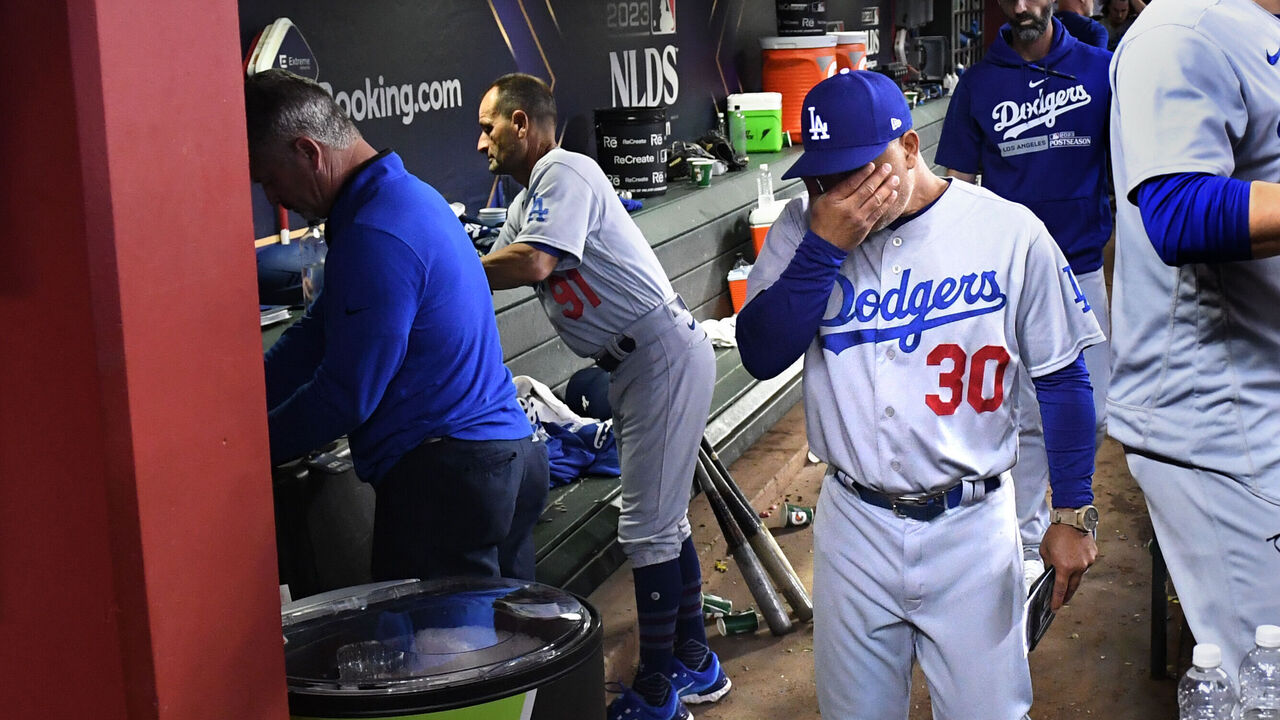
Perhaps the most interesting results come from teams that were within nine games of each other in the regular season. The better-rested teams were 10-19 in Game 1s and 9-20 in the overall series.
We're in the early days of this format, but the rust factor may be real.
Teams do have better ways to replicate game-like situations in practice now, with pitching machines that can mimic the speed, break, and release points of opposing pitchers. And perhaps top-seeded teams could be more creative in scrimmaging during their downtime.
Braves manager Brian Snitker said the team did try and replicate game action during its break.
"We thought we did everything possible during the delay," Snitker told reporters after the Game 4 loss. "Recreated things the best we could."
Rust is apparently hard to shake.
A modest proposal
Whether one views the rust factor as a bug or desirable feature of the system depends on rooting interest.
On one hand, in a sport without a salary cap, rusty top seeds in an increasingly larger playoff field create more championship parity.
On the other hand, there's an argument that the marathon of a 162-game season, which the sport once cherished, looks rather devalued.
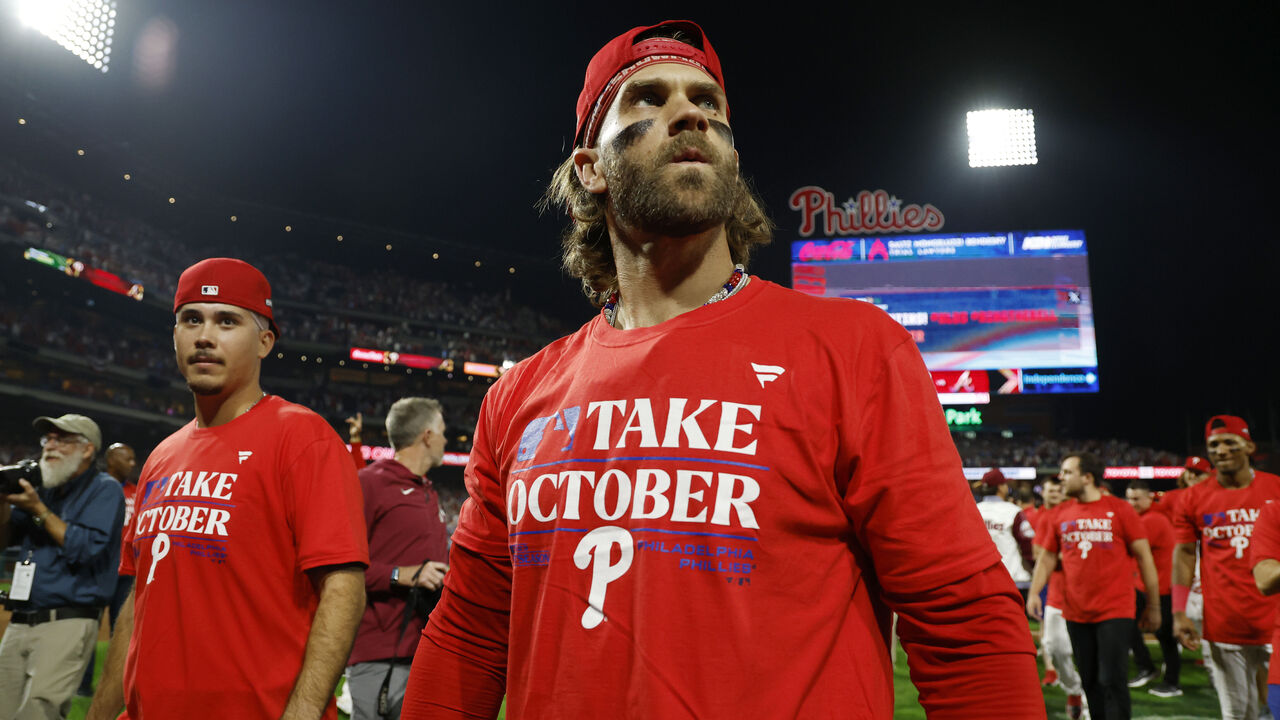
Even if you're not concerned about rust issues or the value of the regular season, there's little debate that a shorter postseason calendar would be beneficial, for a few reasons. One is so the game isn't warped so much from the regular season to the postseason (more off days means fewer pitchers needed, etc.), and another is so World Series games can avoid being played in November in northern cities.
What if I told you there's a way to reduce the number of days needed in the wild-card round, while also creating more regular-season incentives to be the better wild card and avoid the play-in round altogether.
Well, there is.
It's a format I've promoted previously, and it was partially proposed by the MLBPA during the last collective-bargaining negotiations: a best-of-two, or ghost-win proposal. In it, the better wild-card seed needs to win only once to advance, while the lesser seed must win twice. (The KBO employs this format in South Korea.)
Assuming a .540 winning mark for home teams in a playoff format, it reduces the lesser seed's expected advance rate to 30% from something closer to a coin flip.
And to condense the postseason calendar, I propose the second game be part of a doubleheader when it's necessary. (The MLBPA didn't propose this aspect.) This would remove two days from the bye period for top seeds and shorten the postseason overall.
It would also give the sport a fantastic NCAA Tournament-like day of baseball. It could be the best baseball day of the year. Here's what it would have looked like this October:
It would be great overlapping drama, if nothing else. A RedZone-like multi-view on MLB Network, MLB.TV, or a streaming partner would be fantastic viewing. It would also reduce rust.
The October of free agency
Free-agent contracts going south are all too common for teams - ask the Angels. Betting that players will beat the aging curve and maintain performance is often a poor one for the club.
But free agency is playing a critical role in team building this postseason.
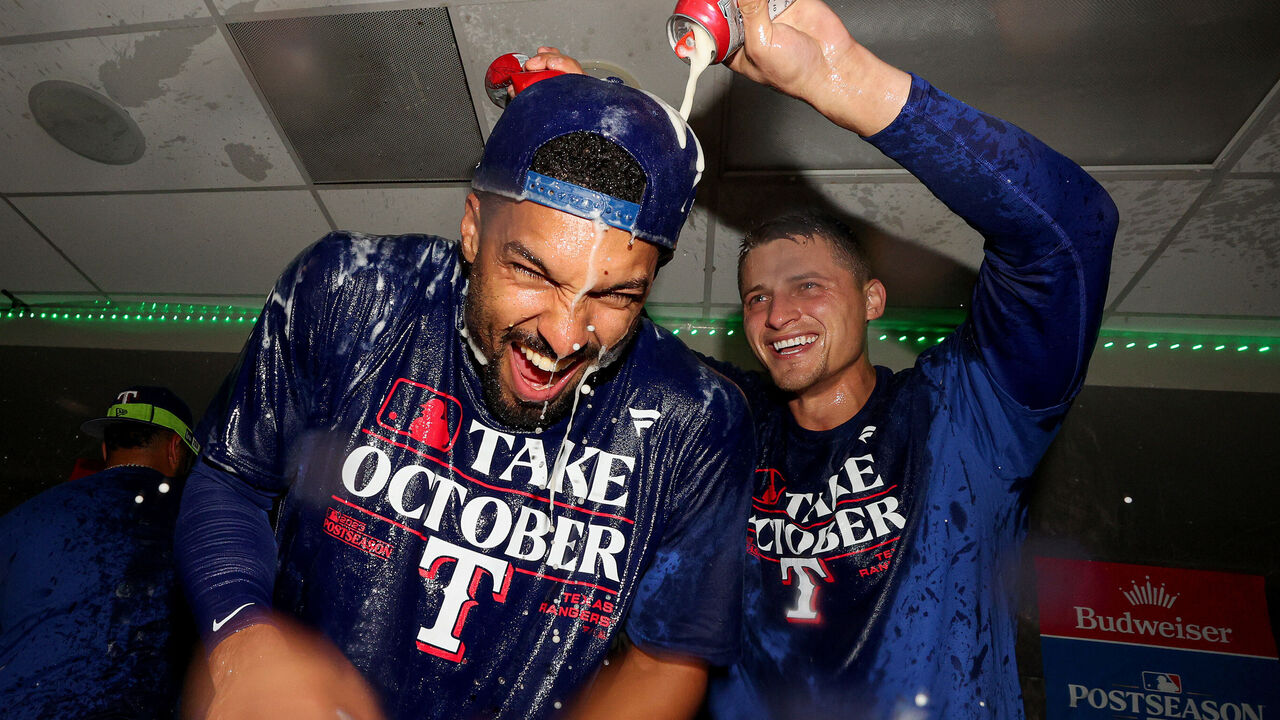
Many scoffed when the Rangers, losers of 102 games in 2021, awarded free-agent mega contracts to infielders Corey Seager and Marcus Semien. But the pair - along with homegrown Texas breakouts like Adolis Garcia, Nathaniel Lowe, Jonah Heim, and Evan Carter - helped create one of baseball's deeper lineups. In fact, Seager and Semien were more than just talented players; they helped change the culture.
Imagine where the Rangers would be if Jacob deGrom was healthy. He was still a worthwhile gamble for the club, and hopefully a second Tommy John alleviates his nagging forearm issues.
Meanwhile, the Phillies are threatening to win back-to-back NL pennants with a roster built heavily on free agents. This season, 60% of the Phillies' WAR came from players signed as free agents (14.9% of the team's WAR came via draft picks). Headliners Bryce Harper, Trea Turner, Kyle Schwarber, Nick Castellanos, and Zack Wheeler were all acquired via free agency.
"That’s why you pay the money," Harper said after the Phillies advanced Thursday.
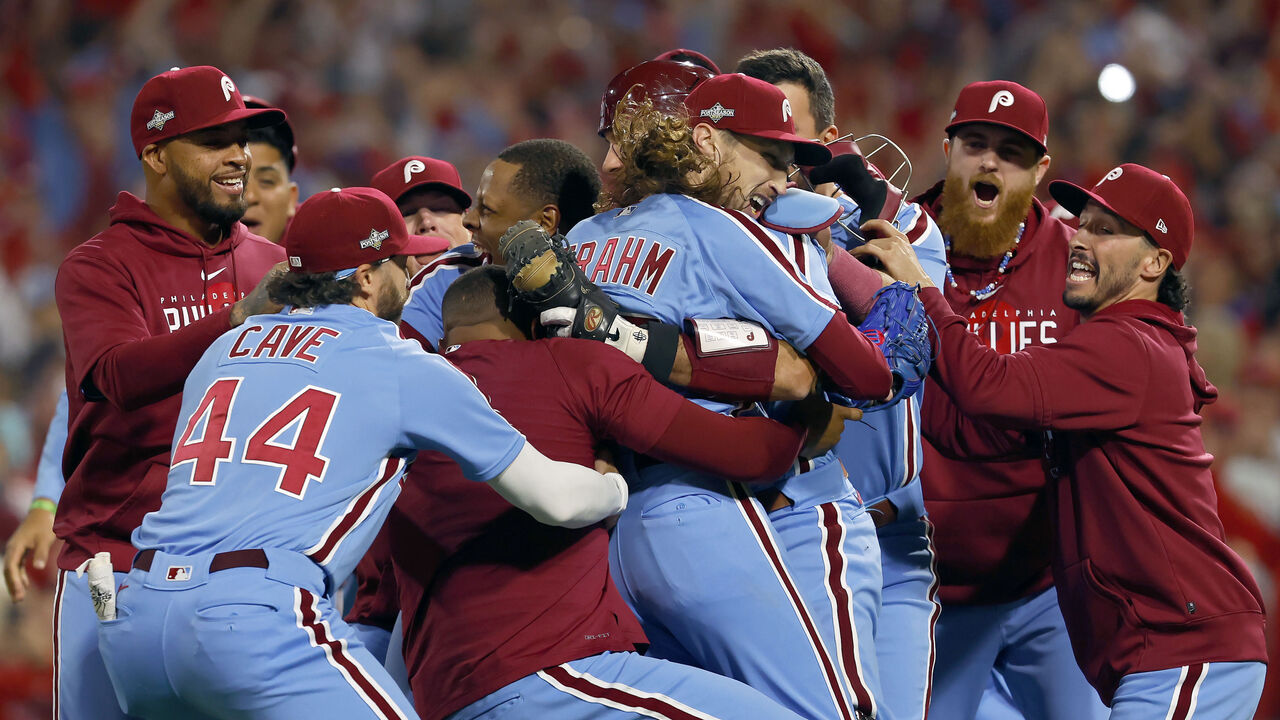
It's sometimes said titles can't be bought, but productive spending on the right targets can certainly bolster chances. It's rare to find a championship club that doesn't receive production from talent acquired externally; not all voids can be filled internally.
This might dampen enthusiasm for Orioles fans.
Despite this season's success, and despite the recent remarkable draft-and-development record, Baltimore can't address every need internally. Further, GM Mike Elias was unwilling to commit to being able to sign an elite free agent when meeting with reporters this week.
The club's only notable free-agent signing last year was innings eater Kyle Gibson. It needs an Aaron Nola-like addition in free agency, but that seems unlikely. The Orioles are on an Astros-like trajectory but they'll eventually need Astros-like spending to get there.
The 2017 Astros, who delivered on their draft-and-develop promise with a World Series championship, had a starting rotation topped by Justin Verlander and Charlie Morton, and position players like Brian McCann, Carlos Beltrán, and Marwin Gonzalez.
The sweeper is real
There's been much hand-wringing on broadcasts this year - and especially this postseason - about the sweeper: the horizontal breaking ball that's become more popular across baseball in recent years.
Many traditionalists scoff at the notion that there's some sort of new invention in pitching, but it does have a pitch shape and movement profile that distinguishes it from other breaking balls:
#Statcast Pitch Movement by Pitch Type
— Tangotiger 🍁 (@tangotiger) October 11, 2023
Any "inconsistencies" you see is really the pitcher themselves overriding the objective definition we'd otherwise employ. https://t.co/mPP7db4Uzz pic.twitter.com/FIUSYldinM
But also true is that the pitch isn't new.
Pitchers have thrown frisbee sliders before. Christy Mathewson was probably throwing one in the early 20th century.
What's changed is that pitches can be scaled now. Pitch-tracking technology and high-speed cameras allow pitchers to see exactly how slight changes to grips and wrist position change a ball's flight. They can receive instant feedback in the pursuit of designing a pitch.
Oakland A's outfielder Brent Rooker explained this well:
This is exactly correct. The pitch has always existed. The more prominent use of trackman and similar technologies and better understanding of spin axis’s, seam shifted wake and other things now allow us to classify as a different pitch instead of just calling it a “frisbee… https://t.co/Wfl2qJWVx4
— Brent Rooker (@Brent_Rooker12) October 11, 2023
Let's get Rooker into a broadcast booth whenever he's done playing.
A lesson in accountability
Braves ace Spencer Strider delivered a masterclass in accepting defeat and responsibility after Atlanta's elimination loss, in which he allowed all three Phillies runs in 5 2/3 innings.
"The people trying to use the playoff format to make an excuse for the results they don't like are not confronting the real issue," he told reporters. "You're in control of your focus, your competitiveness, your energy. If having five days means you can't make the adjustment, you have nobody to blame but yourself."
This is in stark contrast to Braves shortstop Orlando Arcia, who blamed reporters for sharing the "Atta boy, Harper!" he uttered during an open media period in the clubhouse after Harper's baserunning mistake that ended Game 2.
Arcia should simply have been honest. He got caught up in the moment. It's understandable. Perhaps that would have given Harper less bulletin-board fuel. There's a public relations lesson here: accountability goes a long way. It's no wonder Strider is one of the top self-made players in MLB.
Travis Sawchik is theScore's senior baseball writer.
HEADLINES
- Johnson, Wembanyama fuel Spurs to win over Doncic, Lakers
- Chiefs aware of domestic violence allegations that appear directed at Rice
- Raiders pass rusher Maxx Crosby undergoes knee surgery
- Trae might be damaged goods, but he's a worthwhile bet for Wizards
- Gilgeous-Alexander nets 46, Thunder beat Jazz in OT